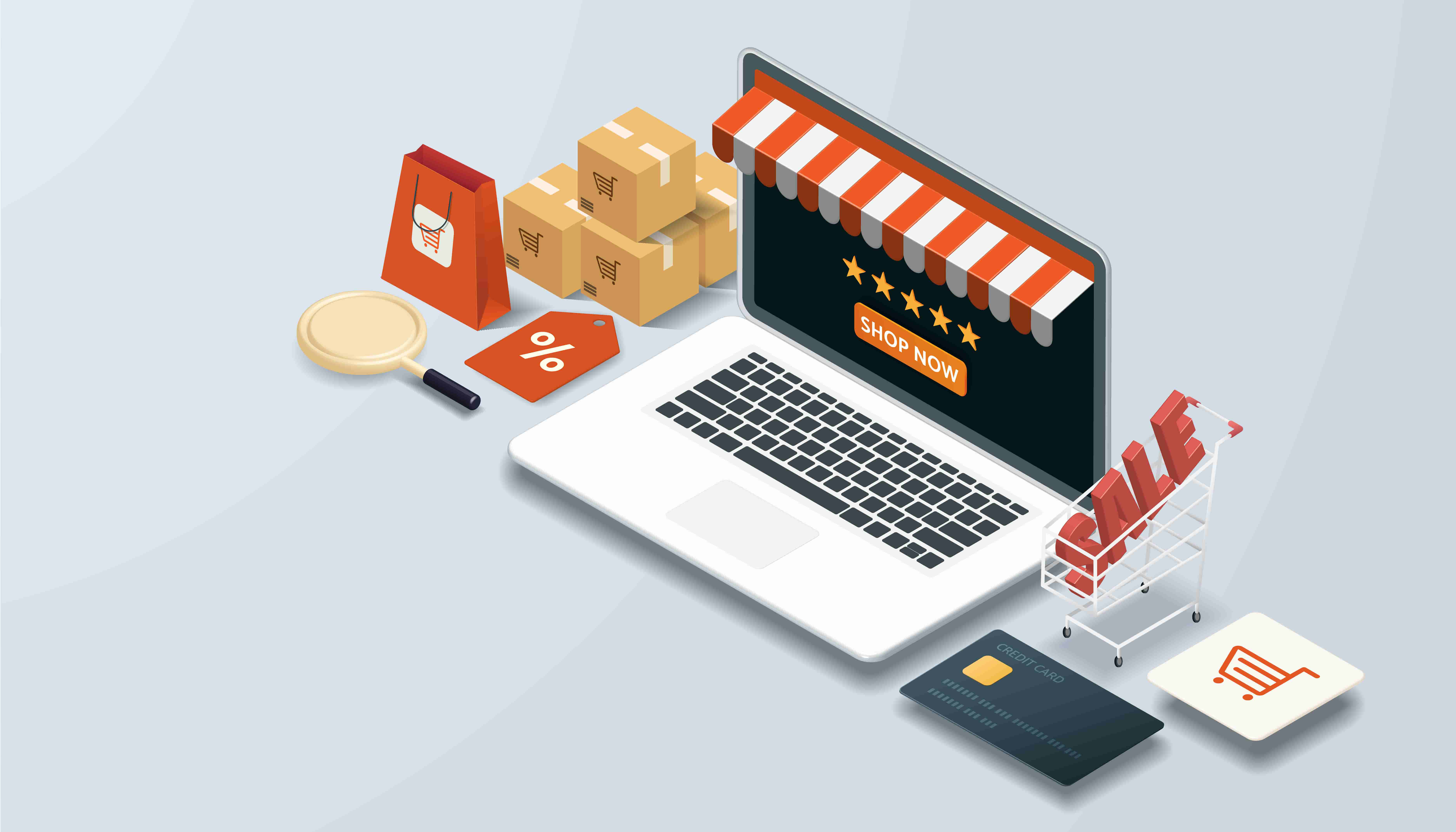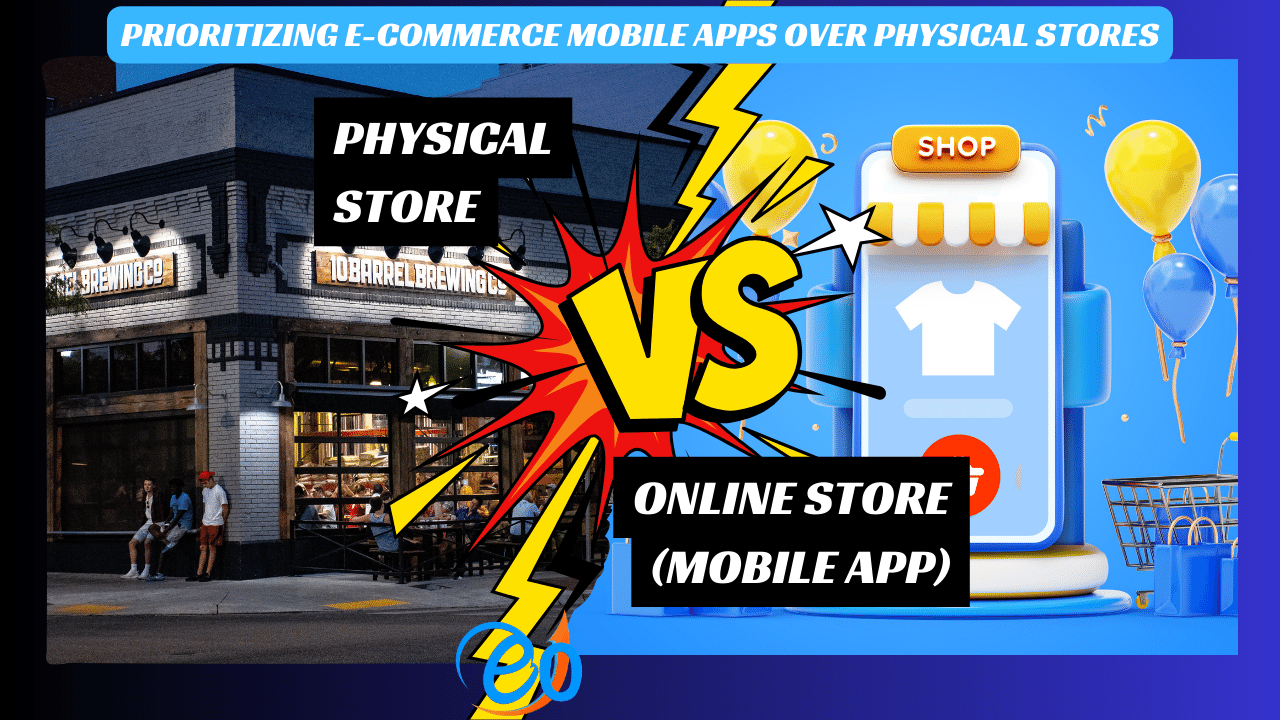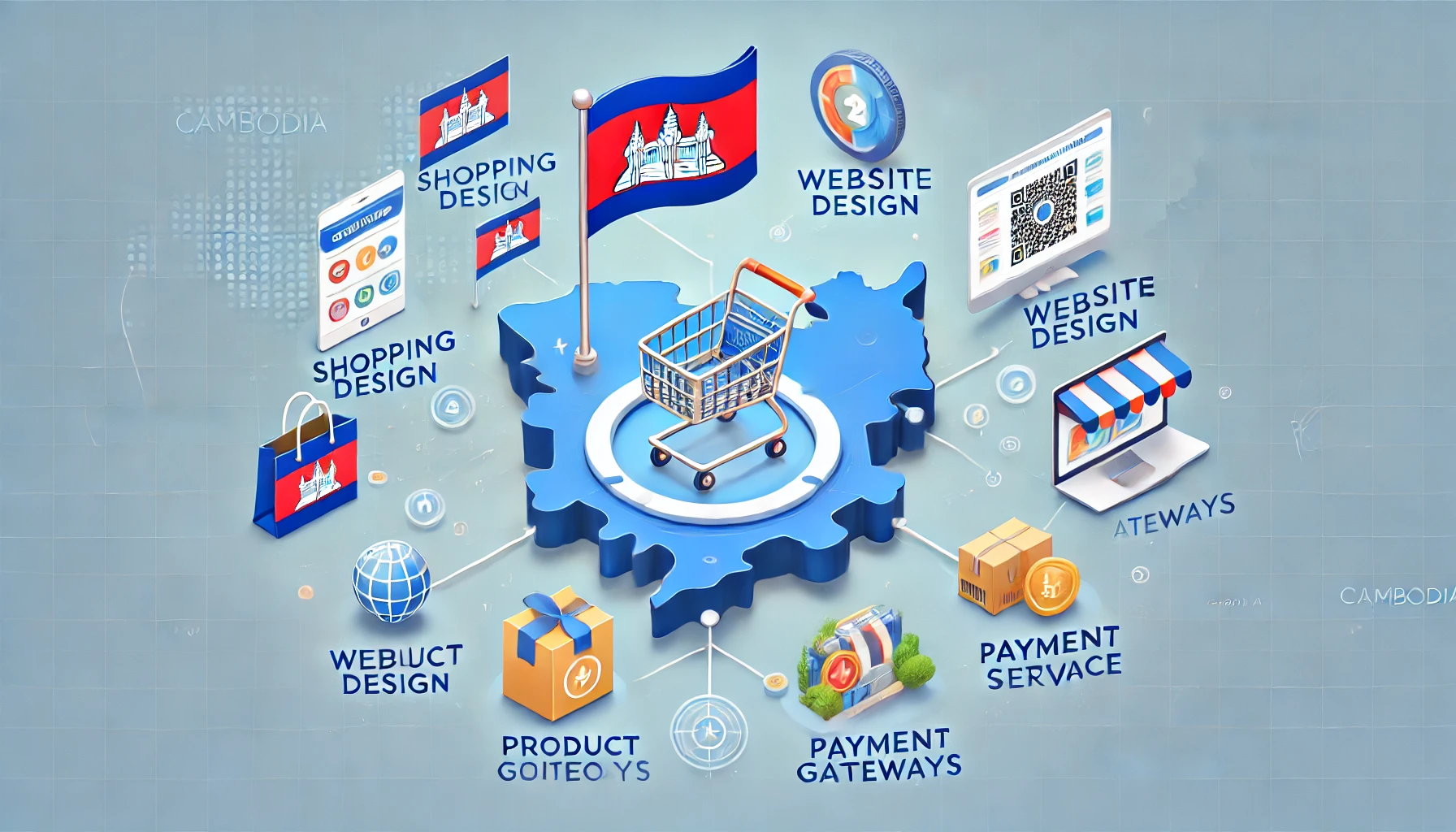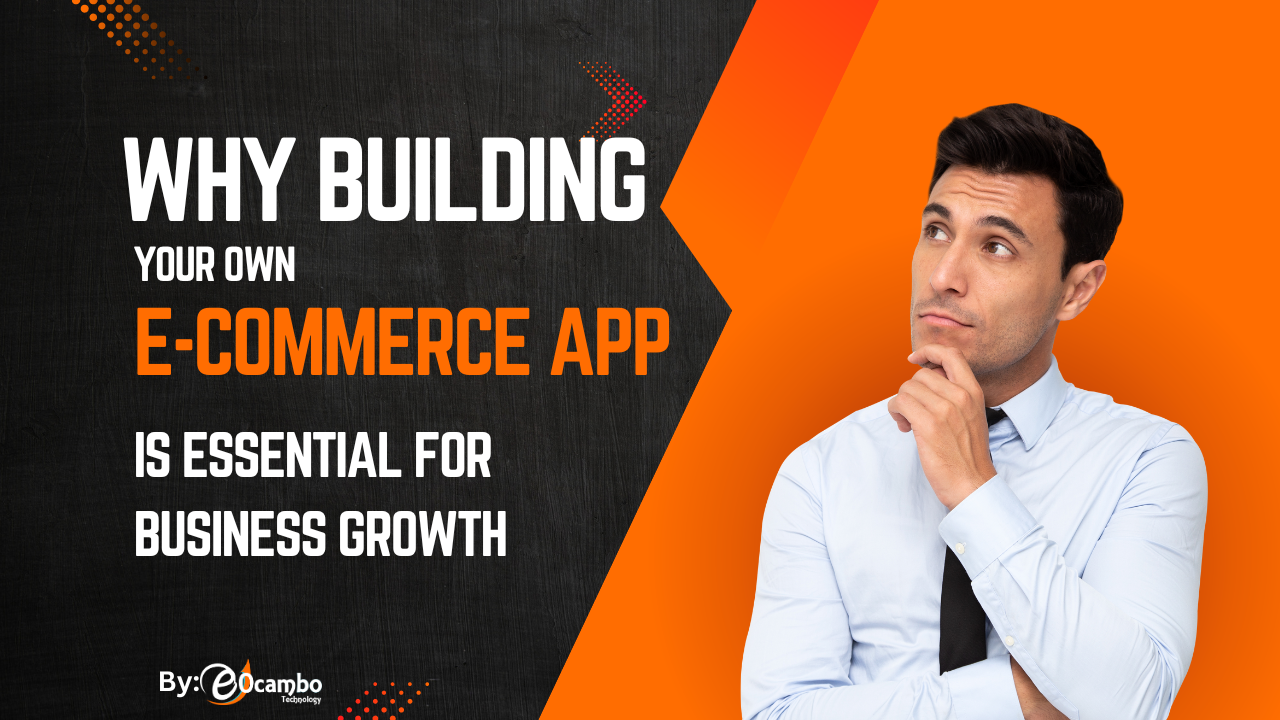In today’s fast-paced digital world, e-commerce has become a cornerstone of successful businesses. An online store offers unparalleled opportunities for growth, reaching a global audience, and generating revenue around the clock. Whether you’re a seasoned entrepreneur or a new business owner, launching an online store can significantly enhance your business. This comprehensive guide will walk you through every step of starting an online store, from planning and design to marketing and scaling, with a focus on the unique context of Cambodia.
Planning Your Online Store
Before diving into the technical aspects of building an online store, it’s crucial to lay a solid foundation through careful planning.
Identifying Your Target Market
Understanding who your potential customers are is the first step to creating a successful online store. Identify demographics such as age, gender, location, and purchasing behavior. Knowing your target market helps tailor your store’s design, product offerings, and marketing strategies to meet their needs.
Conducting Market Research
Research your industry and competitors to identify trends, opportunities, and potential challenges. Analyze what works well for similar businesses and where there might be gaps in the market that you can fill. Market research provides valuable insights that can shape your business strategy.
Defining Your Unique Selling Proposition (USP)
Your USP is what sets you apart from competitors. It could be anything from superior product quality and unique features to exceptional customer service or competitive pricing. Clearly defining your USP will help you attract and retain customers.
Setting Business Goals and Objectives
Outline clear, measurable goals for your online store. These could include sales targets, customer acquisition numbers, or website traffic milestones. Having specific objectives keeps you focused and allows you to track progress over time.
Choosing the Right E-Commerce Platform
Selecting the right e-commerce platform is crucial for the success of your online store. The platform you choose will impact everything from site performance to the customer experience.
Overview of Popular E-Commerce Platforms of online store
There are several e-commerce platforms available, each with its own set of features and benefits:
Shopify: Known for its ease of use and robust app ecosystem, Shopify is a popular choice for beginners and small businesses.
WooCommerce: A WordPress plugin, WooCommerce offers flexibility and control, making it ideal for those who want to customize their store extensively.
Magento: A powerful platform suitable for larger businesses, Magento offers advanced features and scalability but requires more technical expertise.
Shopify Cambodia: A localized version of Shopify with features tailored to the Cambodian market, including support for local payment methods and languages.
Key Features to Look for in an E-Commerce Platform
When choosing an e-commerce platform, consider the following features:
Ease of Use: A user-friendly interface that allows you to manage your store without extensive technical knowledge.
Customization Options: The ability to customize the look and feel of your store to match your brand.
Payment Gateway Integration: Support for multiple payment methods to provide a seamless checkout experience.
SEO Capabilities: Tools and features that help optimize your store for search engines.
Scalability: The ability to grow with your business and handle increased traffic and sales.
Comparing Costs and Scalability Options
Different e-commerce platforms have varying pricing models. Some charge a monthly fee, while others may take a percentage of your sales. Consider both the immediate and long-term costs, including transaction fees, app integrations, and additional features. Ensure that the platform you choose can scale with your business as it grows.
Selecting and Sourcing Products
Choosing the right products to sell and finding reliable sources are crucial steps in starting an online store.
Deciding on the Types of Products to Sell
Identify products that align with your business goals and appeal to your target market. Consider factors like demand, competition, and profitability. Look for products that solve a problem or fulfill a need for your customers.
Sourcing Products
There are several ways to source products for your online store:
Manufacturers: Partner directly with manufacturers to get products at a lower cost. This often requires buying in bulk.
Wholesalers: Purchase products from wholesalers who sell goods in large quantities at discounted prices.
Dropshipping: Work with suppliers who ship products directly to your customers, eliminating the need for inventory storage.
Creating a Product Inventory
Organize your product offerings into categories and create detailed descriptions for each item. High-quality images and videos are essential to showcase your products effectively. Ensure that your inventory management system keeps track of stock levels to avoid overselling.
Designing Your Online Store
A well-designed online store enhances the shopping experience and builds customer trust.
Importance of a Professional and User-Friendly Design
Your store’s design should reflect your brand and provide a seamless user experience. A clean, intuitive layout makes it easy for customers to find what they’re looking for and complete their purchases.
Choosing a Theme or Template
Most e-commerce platforms offer a range of themes and templates that you can customize. Choose a theme that fits your brand’s aesthetic and offers the functionality you need.
Customizing Your Store’s Design
Branding elements like your logo, color scheme, and typography should be consistent throughout your store. Customize the layout to highlight key products and promotions. Ensure that your store is mobile-friendly, as many customers will shop from their smartphones.
Setting Up Payment Gateways
Enabling secure and convenient payment options is critical for a successful online store.
Overview of Payment Gateway Options
Payment gateways facilitate transactions between your customers and your store. Popular options include:
PayPal: Widely recognized and trusted, PayPal offers a simple checkout process.
Stripe: Known for its developer-friendly API, Stripe supports a wide range of payment methods.
2C2P Cambodia: A payment gateway specifically designed for the Cambodian market, supporting local banks and payment methods.
Integrating Payment Gateways with Your E-Commerce Platform
Most e-commerce platforms offer straightforward integration with major payment gateways. Follow the platform’s instructions to set up and test your payment options.
Ensuring Secure Transactions
Security is paramount for online transactions. Use SSL certificates to encrypt data, and comply with PCI DSS (Payment Card Industry Data Security Standard) requirements to protect your customers’ payment information.
Building Product Pages
Creating compelling product pages is essential for converting visitors into customers.
Writing Compelling Product Descriptions
Your product descriptions should be clear, concise, and persuasive. Highlight key features, benefits, and specifications. Use bullet points for easy readability and incorporate relevant keywords for SEO.
Importance of High-Quality Images and Videos
High-quality visuals help customers make informed purchasing decisions. Use multiple images to show products from different angles and include videos if possible. Ensure that images are optimized for fast loading times without compromising quality.
Setting Prices and Creating Product Variations
Price your products competitively while ensuring a reasonable profit margin. Offer variations such as different sizes, colors, or models to cater to a wider audience. Clearly display pricing and variation options on your product pages.
Implementing SEO Strategies
Search engine optimization (SEO) is crucial for driving organic traffic to your online store.
Basic SEO Principles for E-Commerce Sites
SEO involves optimizing your site’s content and structure to rank higher in search engine results. Key principles include:
Keyword Research: Identify relevant keywords that potential customers are searching for.
On-Page SEO: Optimize individual pages with keywords in titles, headers, meta descriptions, and content.
Technical SEO: Ensure your site is fast, mobile-friendly, and easily crawlable by search engines.
Keyword Research and Optimization
Use tools like Google Keyword Planner, SEMrush, or Ahrefs to find keywords related to your products. Incorporate these keywords naturally into your product descriptions, category pages, and blog posts.
Creating SEO-Friendly URLs, Titles, and Meta Descriptions
Use descriptive URLs that include keywords (e.g., yoursite.com/product-name). Write compelling, keyword-rich titles and meta descriptions for each page. These elements help search engines understand your content and improve click-through rates from search results.
Developing a Marketing Plan
A robust marketing plan drives traffic to your online store and converts visitors into customers.
Overview of Digital Marketing Strategies
Effective digital marketing involves a mix of strategies, including:
SEO: Optimizing your site to rank higher in search engine results.
PPC Advertising: Running paid ads on platforms like Google Ads and Facebook Ads to drive targeted traffic.
Social Media Marketing: Engaging with your audience on social media platforms to build brand awareness and drive traffic.
Email Marketing: Nurturing leads and retaining customers through email campaigns.
Creating a Content Marketing Plan
Content marketing involves creating valuable, relevant content to attract and engage your target audience. This could include blog posts, videos, infographics, and more. Share your content on your website and social media channels to drive traffic and improve SEO.
Leveraging Influencer Marketing and Partnerships
Collaborate with influencers and other businesses to expand your reach. Influencers can promote your products to their followers, while partnerships can open up new marketing opportunities.
Launching Your Online Store
Properly launching your online store is crucial for making a strong first impression and attracting initial customers.
Pre-Launch Checklist
Before launching, ensure that everything is in place:
Testing: Check all functionalities, including navigation, product pages, payment processes, and customer support features.
Content: Ensure all content is complete and free of errors. This includes product descriptions, images, and informational pages.
Functionality: Test your site on various devices and browsers to ensure it’s responsive and performs well.
Soft Launch vs. Hard Launch
A soft launch involves releasing your store to a limited audience before a full-scale launch. This allows you to gather feedback and make necessary adjustments. A hard launch is a full public release with promotional activities to attract attention.
Initial Marketing Efforts to Drive Traffic
Kickstart your marketing efforts with strategies such as:
Social Media Announcements: Use platforms like Facebook, Instagram, and Twitter to announce your launch and share updates.
Email Campaigns: Send newsletters to your email list to inform them about your new store and any special promotions.
Paid Advertising: Invest in pay-per-click (PPC) advertising to drive targeted traffic to your store.
Managing Orders and Inventory
Efficient order and inventory management are essential for maintaining customer satisfaction and business efficiency.
Order Processing and Fulfillment
Develop a streamlined process for handling orders, from confirmation to shipping. Use order management software to keep track of order statuses and ensure timely fulfillment.
Inventory Management Best Practices
Keep your inventory organized and updated to avoid stockouts or overstocking. Use inventory management tools to track stock levels, set reorder points, and generate reports.
Handling Returns and Exchanges
Implement a clear return and exchange policy to handle customer requests efficiently. Provide a hassle-free process for returns and exchanges to maintain customer satisfaction and loyalty.
Providing Excellent Customer Service
Excellent customer service can set your online store apart from competitors and build long-term customer relationships.
Setting Up Customer Support Channels
Offer multiple support channels, such as live chat, email, and phone, to address customer inquiries and issues. Ensure that support is responsive and helpful.
Creating a FAQ Section
A comprehensive FAQ section can answer common questions and reduce the number of support requests. Include information on shipping, returns, payment methods, and more.
Handling Customer Inquiries and Complaints Effectively
Train your support team to handle inquiries and complaints professionally and courteously. Aim to resolve issues promptly to maintain customer trust and satisfaction.
Analyzing and Optimizing Performance of Your Online Store
Regular analysis and optimization are key to the ongoing success of your online store.
Key Metrics to Track
Monitor important metrics such as:
Traffic: Number of visitors to your site.
Conversion Rate: Percentage of visitors who make a purchase.
Average Order Value: Average amount spent per order.
Customer Acquisition Cost: Cost of acquiring a new customer.
Customer Lifetime Value: Total revenue generated by a customer over their lifetime.
Using Analytics Tools
Use tools like Google Analytics and platform-specific analytics to track and analyze performance. These tools provide insights into visitor behavior, traffic sources, and sales trends.
Continuous Improvement Strategies
Implement continuous improvement strategies such as A/B testing, user feedback, and regular performance reviews. Make data-driven decisions to optimize your store and marketing efforts.
Scaling Your Online Store
As your business grows, look for opportunities to scale and expand your online store.
Expanding Product Lines
Introduce new products or categories to attract more customers and increase sales. Use market research and customer feedback to guide your product expansion strategy.
Exploring New Marketing Channels
Diversify your marketing efforts by exploring new channels such as affiliate marketing, influencer collaborations, and online marketplaces.
International Expansion Considerations
If you’re considering expanding internationally, research the market, local regulations, and shipping logistics. Localize your website and marketing efforts to appeal to new audiences.
Conclusion
Starting an online store in Cambodia offers immense potential for business growth. By following this comprehensive guide, you can create a successful online store that meets the needs of your target market and stands out in the competitive e-commerce landscape. Remember, the key to success lies in careful planning, consistent effort, and continuous optimization. Good luck on your journey to launching a thriving online store!
FAQs
What is the best e-commerce platform for beginners in Cambodia?
Shopify and WooCommerce are popular choices for beginners due to their ease of use and extensive support resources.
How can I optimize my online store for search engines?
Implement on-page SEO techniques such as keyword optimization, meta tags, and high-quality content. Additionally, ensure your site is mobile-friendly and has fast loading times.
What are the most effective marketing strategies for an online store?
Effective strategies include SEO, PPC advertising, social media marketing, and email marketing. Combining these strategies can help drive traffic and increase sales.
How can I handle international shipping for my online store?
Research reliable shipping carriers that offer international services. Consider using third-party logistics providers to manage international shipments and customs procedures.
What should I include in my return and exchange policy?
Your policy should clearly state the conditions for returns and exchanges, the time frame within which returns are accepted, and the process for returning items. Providing a hassle-free return policy can enhance customer satisfaction and trust.











